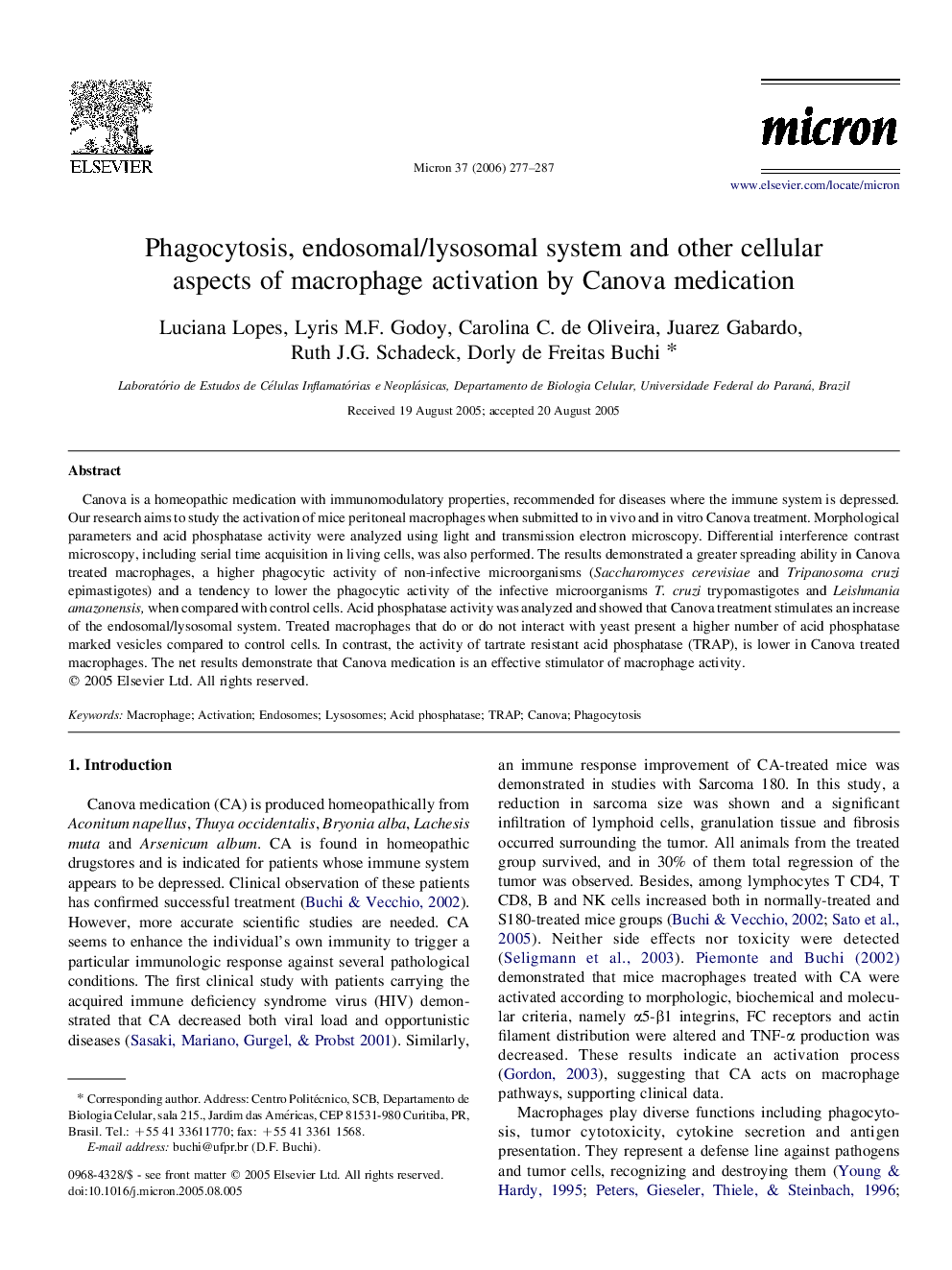| Article ID | Journal | Published Year | Pages | File Type |
|---|---|---|---|---|
| 1590006 | Micron | 2006 | 11 Pages |
Canova is a homeopathic medication with immunomodulatory properties, recommended for diseases where the immune system is depressed. Our research aims to study the activation of mice peritoneal macrophages when submitted to in vivo and in vitro Canova treatment. Morphological parameters and acid phosphatase activity were analyzed using light and transmission electron microscopy. Differential interference contrast microscopy, including serial time acquisition in living cells, was also performed. The results demonstrated a greater spreading ability in Canova treated macrophages, a higher phagocytic activity of non-infective microorganisms (Saccharomyces cerevisiae and Tripanosoma cruzi epimastigotes) and a tendency to lower the phagocytic activity of the infective microorganisms T. cruzi trypomastigotes and Leishmania amazonensis, when compared with control cells. Acid phosphatase activity was analyzed and showed that Canova treatment stimulates an increase of the endosomal/lysosomal system. Treated macrophages that do or do not interact with yeast present a higher number of acid phosphatase marked vesicles compared to control cells. In contrast, the activity of tartrate resistant acid phosphatase (TRAP), is lower in Canova treated macrophages. The net results demonstrate that Canova medication is an effective stimulator of macrophage activity.
